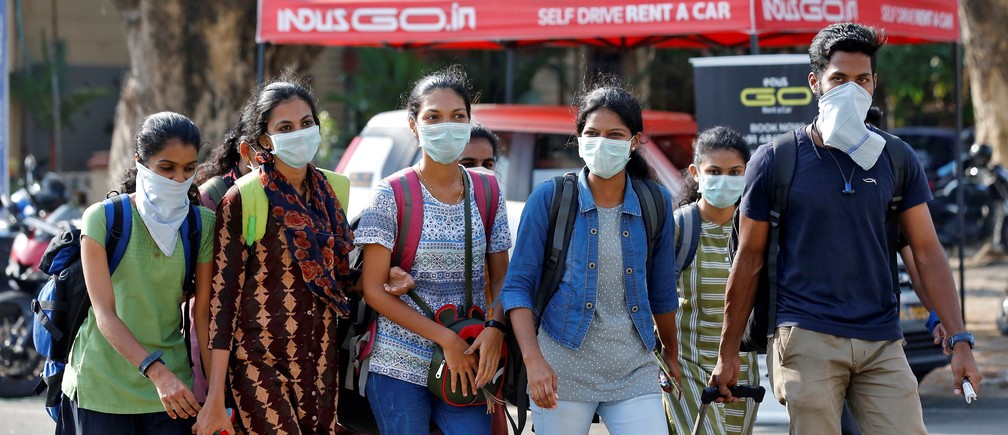World Bank reports that nearly half of the world’s population is under the age of 25. As we discuss the mass implications of COVID-19, it is worth considering how this pandemic will particularly affect younger generations both in the short and long-term, given the world’s future depends on today’s youth.
Around the world, learning institutions have been closed indefinitely. UNESCO estimates that out of the total population of students enrolled in education globally, about 90% (representing 1.54 billion children and youth) are currently out of school as a result of COVID-19 closures and lock-downs. Many educational institutions have now moved their learning to digital platforms while others, due to lack of alternatives, have been forced to pause learning until the pandemic is brought under control.
What does this mean for young people from underprivileged backgrounds who cannot afford electricity, let alone access to the internet to continue their education? Not only will this further illustrate the gap between the rich and poor, but will cause students who are struggling financially to lag behind in education. Learners risk contending with cancelled exams, delayed graduations or worse, being forced to repeat a year of learning (also known as ‘grade retention’).
Furthermore, quarantine measures imposed in response to the pandemic will, in some cases, put children at risk of psychological distress. Children with special education needs, such as those with cerebral palsy, or autism, are particularly vulnerable. According to the University of Hong Kong psychiatrist Chi-Hung Au, differently- abled children become frustrated when their routines are disrupted or when they face uncertainty, all of which can lead to increased anxiety.
The Human Rights Watch has also revealed that social isolation measures can severely impact the mental, emotional and physical health of those children who reside in abusive home environments and are now cut off from essential protection services and social networks. This means that some children are now literally trapped in abusive homes which increases their vulnerability to sexual and emotional abuse, child labour, gender-based violence and other forms of neglect and abuse.
The mental and emotional pressures of the novel coronavirus have already proven to be significantly challenging for the world’s younger demographies – be they the result of job losses, loss of loved-ones, lack of food, educational disruption or, general uncertainties about the future.
A youth survey conducted by the Aga Khan University’s East Africa Institute reveals that the greatest concern for youth in East Africa is unemployment. Unfortunately, as cases of COVID-19 infections increase, the number of young people losing their jobs increases. Financial pressure amidst health concerns means less financial and social security for youth, who are twice more likely to be unemployed than adults. This breeds a hidden toll on young adults who have an obligation to feed and financially support their families and elderly parents.
The often overlooked and youngest generation – which includes infants and the unborn – are potentially the most vulnerable to pandemic-induced uncertainties. The effects on them may not be direct, but scientific research on early human development reveals that depression and anxiety in their parents has a large effect on the mental health of young children and the unborn. In addition, a United Nations report by the Global Health Crises Taskforce indicates that healthcare resources are often diverted to tend to the pandemic at hand, thus reducing the already limited access to sexual and reproductive health services including, ante-natal and post-natal health services, putting the health of these young people at risk.
Several lessons on improving the quality of life for young people may be learned from these unprecedented times. Challenges posed by COVID-19 could potentially serve as an opportunity for academia and experts in the field of education to rethink the sector and promote a level playing field for all children in the future. Proactive measures of protecting and safeguarding children from abuse and gender-based violence must be accentuated and prioritized in all policies, directives and information enforced in both national and local responses to the pandemic. Industry players must find sustainable ways of cushioning employees from job loss and salary cuts to encourage a secure workforce in the midst of today’s shocks and stresses.
Governments should seriously consider creating opportunities for young people to contribute to, as well as engage in, policies and innovative ideas, in the fight against COVID-19, whether this be in the form of online and/or remote jobs or involvement in mental and physical health awareness campaigns. Access to reliable information about the disease and how to cope appropriately may reduce fear and anxiety within the population. This may also require grassroots as well as, community-based work and partnerships.
Decisions made by a variety of actors must consider every social, mental and emotional impact this historical pandemic will have on young people today and, for the rest of their lives.
Today’s children and young people consist of the next generation of caregivers, doctors, scientists and decision-makers; all are powerful change agents. It is therefore important to recognize this pivotal moment in time for what it is – an opportunity for growth where young people can learn to recognize the importance of resilience and the potential of their strength.
COVID-19 will be a foundational experience for many young people as they watch how the government, private sector, cities, and even their own families respond. It’s critical that we, as members of the global community, address the devastating repercussions of the current situation in a calm, collected, practical and unified manner for the sake of our future generations.
Mercy Karumba Mwangi is the Programmes Officer for the East Africa Institute, Aga Khan University.
Photo credit – REUTERS/Sivaram V – RC20HF93NFZU


